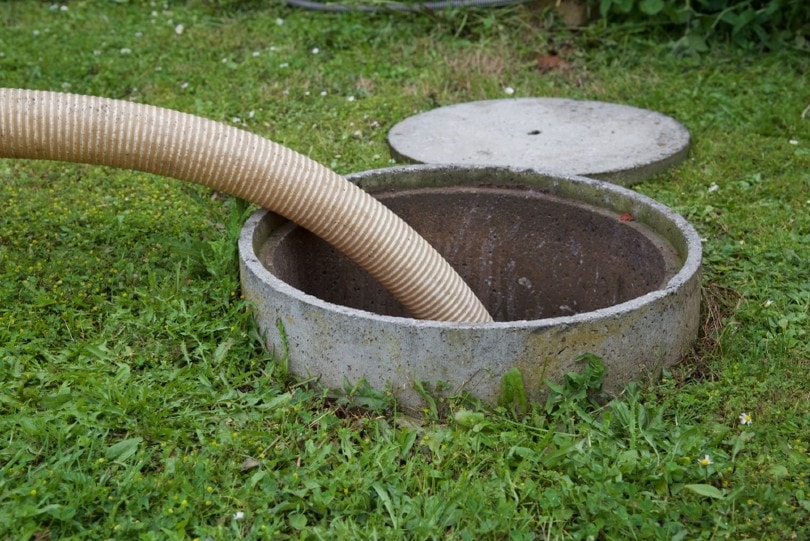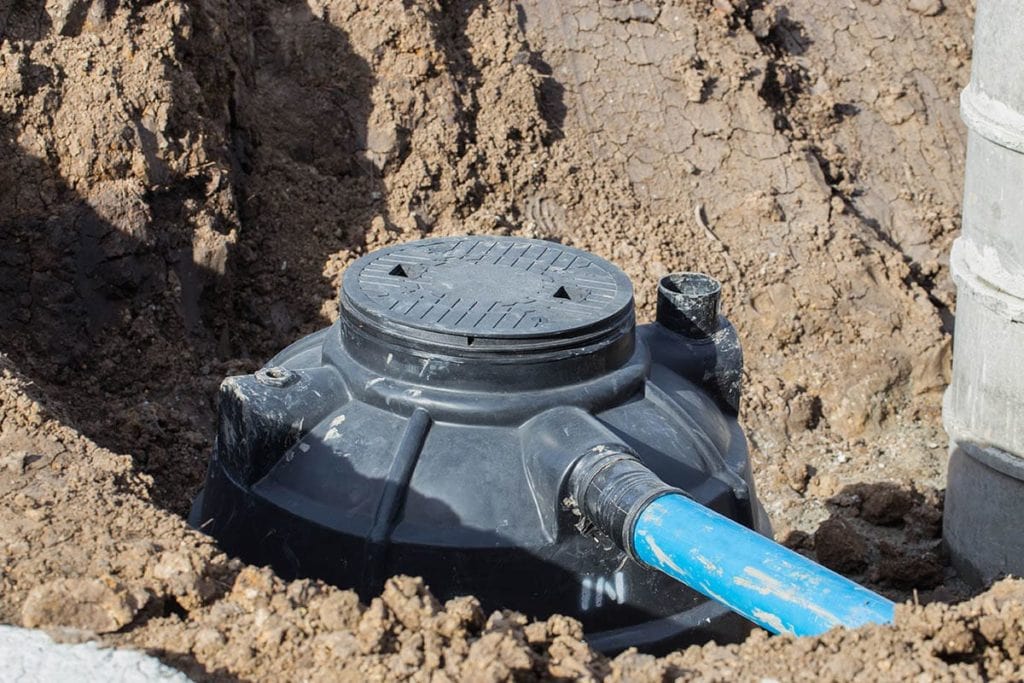How Often Should You Pump & Clean a Septic Tank? Signs, Facts, & FAQ
-
- Last updated:

Septic tanks are still common features of American homes. Roughly 20% of homes in the United States feature septic tanks, and that accounts for 21 million homeowners. When everything is working properly, septic tanks are an effective sanitary feature but keeping septic tanks healthy, and functioning requires periodic maintenance and upkeep. Neglecting your septic tank can lead to disastrous and disgusting consequences. It is always better to stay ahead of your septic tank maintenance to avoid a terrible outcome. Its recommended to pump and clean your septic tank every 5 years.
How often should you pump and clean a septic tank? Septic tank maintenance should occur every two years or when conditions arise that require immediate attention. This article will quickly run down what you need to know to keep your septic tank in perfect working order.

How Often Should You Pump a Septic Tank?
Unlike city water and sewage, septic tanks store water and waste. Septic tanks only have a certain amount of space to hold waste, and eventually, they will fill up. In order to lower the levels of waste in a septic tank, they have to be emptied by a service company that comes and pumps out the material. But how often does this need to happen?
Septic tanks should be pumped out every three to five years. The actual time frame will depend on a handful of factors, including usage and tank size. Homes with a large number of people will require service more frequently than a home with just a couple of people. Homes that run more water via things like showers, kitchen sinks, dishwashers, and washing machines will fill their tanks faster than homes with lower water usage. Septic tanks also come in various sizes. Small septic tanks can hold 500 gallons, and large septic tanks can hold 1,250 gallons. An average home will require a septic tank of between 750 and 1,000 gallons. A home with a small septic tank will need to be pumped more often than a home with a large septic tank.
Five years is considered the maximum amount of time that a homeowner should wait to get their septic tank completely pumped out. When you have your septic tank pumped out, ask your technician what they suggest your maintenance schedule should be based on how full the tank was and how large the tank is. If you suspect that your septic tank is close to full, full, or overfull, you should call and have someone look at it right away.

How Often Should You Clean a Septic Tank?
Even if your septic system does not need a full pump out, it is still a good idea to have it inspected and cleaned every two years. Septic tanks are not just receptacles, they are an integrated sanitary system with multiple parts that need to remain clean and functional in order to be in good working order.
One of the most important parts of the septic tank that need to be looked at independently of how full the tank is are the inflow and outflow pipes. A septic tank includes various pipes that allow wastewater to flow in and out of the tank. Septic tanks often include one main inflow pipe that funnels water from the home into the tank. These pipes often have a filter and a testing valve that should be looked at every couple of years to ensure that the pipe is not becoming clogged or hindered. You could experience septic backups if your inflow pipe becomes clogged even if the tank is not full.
Septic tanks also have various outflow pipes that take gray water from the tank and distribute it to a nearby drain field. These outflow pipes help to keep your septic tank from filling up with water. If your drain field becomes pinched, clogged, or ineffective, it will cause the tank to fill with water which will require much more frequent service than a tank that has a functioning drain field. A septic inspection will look at the inflow pipe, the outflow pipes, and the drain field to ensure that everything is working properly.
One of the services that a septic tank inspector will perform is cleaning out the filters, valves, and pipes that ensure that water and waste flow freely throughout the year. A biannual septic inspection will also let you know how often you should get your tank pumped. An inspector will look into your tank and let you know approximately how much time you have left before you need a pump out. This advanced information can help you plan your finances and avoid a messy septic accident.
Signs Your Septic Tank Needs Service
An ailing septic tank will be hard to ignore. There are various signs that your septic tank needs to be inspected, cleaned, and pumped. One of the easiest signs to spot is sewage backups and a strong sewage smell. A full tank will start to push waste and stinky gasses toward the inflow pipe, which will start pushing the unwanted materials back into the house. If you flush and the water does not go anywhere, it could be a sign that your septic tank is full.
Slow drains could also be a sign of a full septic tank. If you have multiple drains that start draining slowly at the same time, it could be a sign that the water has nowhere to go rather than a simple clog.
The last sign that your septic needs service is when water starts pooling around your septic tank. If you know the location of your septic tank, check the ground around the tank for signs of water, bad smells, and persistent mud. Full tanks start putting out excess water and occasionally sewage into the surrounding yard. If you spot foul-smelling mud or water on a dry day in the area directly around your septic tank, it could be a sign that you need to call a septic technician.
Ignoring these signs can cause terrible consequences. Sewage backups can cause thousands of dollars of damage to your home and will leave your house reeking of raw sewage. Having a sewage backup cleaned and repaired can be an emergency that will cost far more money than a simple maintenance call.

Conclusion
Septic tanks require regular maintenance to remain healthy and functional. It is suggested that septic tanks are inspected and cleaned every two years. Septic tanks require a full pump out every three to five years, depending on the size of the tank and the home’s annual water usage. Ignoring your septic tank’s maintenance schedule can have tragic and smelly consequences that can quickly become a nightmare for homeowners.
Featured Image Credit: M G White, Shutterstock
Contents

